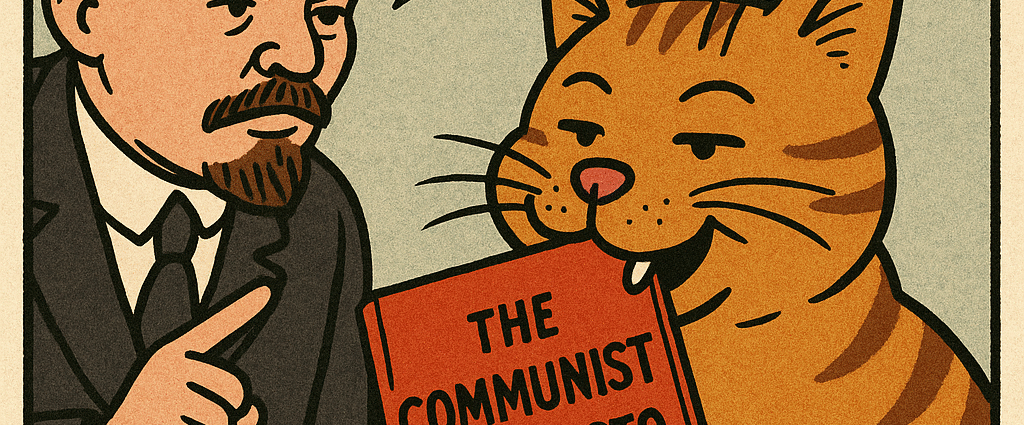
Vaska is a cat from an old Russian fable written by the famous poet Ivan Krylov in the 19th century. In the story, a cook catches his cat, Vaska, stealing and eating roast meat from the kitchen. The cook shouts and scolds the cat loudly, warning him and saying how shameful and wrong it is. But the cat keeps eating calmly, without stopping or feeling guilty. This fable ends with a powerful Russian proverb: “Vaska listens, but keeps eating.” It means some people pretend to listen to advice or criticism, but in reality, they ignore it completely.
This story became even more famous because Russian revolutionary Vladimir Lenin used it in 1904. During a time when his own party, the Russian Social Democratic Labour Party (RSDLP), was divided, Lenin was angry with the Menshevik faction and their leader, Plekhanov. They acted against party unity but pretended to be loyal. Lenin wrote a book titled “One Step Forward, Two Steps Back,” where he said: “Plekhanov is like Vaska the cat. He listens, but eats.” What Lenin meant was that some leaders hear criticism and accept it on the surface, but continue doing whatever they want, even if it harms the party or the people.
So, Vaska the cat is not just a cute animal from a story. He is a symbol of stubbornness and dishonesty in politics. Whether in Lenin’s time or in modern Sri Lanka, Vaska still lives on—calmly eating, even while the people shout.












